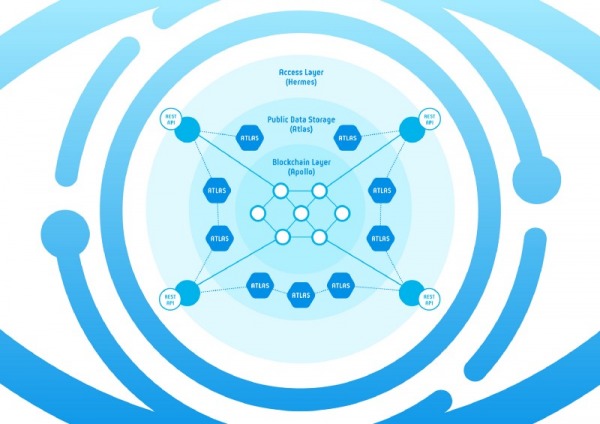Ambrosus is a blockchain-powered IoT network that focuses on the supply chain industry (especially of food and medicine). Their mission is to set a global standard for supply chain management and provide quality assurance in enterprise IoT ecosystems.
There are a few blockchain projects that focus on supply chain management, but each one differs in approach. Ambrosus’ approach is to build the hardware necessary to track items through the stickers and packaging. The hardware consists of sensors that can track metrics (like movement and temperature), which can also include RFID chips, QR codes, and other data-tracking devices.
Learn more about the project in our introduction to Ambrosus.
Recent Developments at Ambrosus
Ambrosus has witnessed some key developments in the last few months. These includes significant progress with the hardware sensors and 3D printing, launch of the Ambrosus SDK, successful creation of the developer dashboard, clients and community meetings on various continents, and the expansion of the Ambrosus team (which more than doubled from its previous size) to more than 3 cities.
The Launch of AMB-NET
The primary launch of the AMB-NET took place on July 31, 2018. The beta launch took place in May and companies have reportedly been testing the solution since then. This primary launch coincides with the onboarding of masternodes to the network.
The Ambrosus network is made up of 3 different types of masternodes:
- Apollo (250,000 AMB stake)
- Hermes (150,000 AMB stake)
- Atlas, which includes
- Atlas Omega (75,000 AMB stake)
- Atlas Sigma (30,000 AMB stake)
- Atlas Zeta (10,000 AMB stake)

AMB-NET is designed to be a complete and integrated package solution that allows high-tech hardware sensors to communicate in real time with a distributed platform in an easy, convenient, and enterprise-friendly manner.
The AMB-NET provides enterprises with all the necessary tools required to integrate blockchain technology with a customer’s business. The tools include private data storage, user and access control in a decentralized context, trust data storage, platform to build dapps, and more.
Since the primary launch, client partners are now able to connect to the network with their IT systems and start monitoring and tracking their products. August 2018 will be spent observing the effectiveness of the AMB-NET 1.0 and also getting feedback from clients (who are users of the network).
For the community, the masternode selection process begins in August 2018. Applications to run the masternode will be through the Ambrosus Newsletter.
Upcoming Developments
The AMB-TEST network is expected to be launched in September 2018. The purpose of this is to lay the groundwork for community members to become operators of the network, while clients perfect the management of their data via the AMB-NET 1.0.
During this time, the native coin of the Ambrosus network (AMB) will operate on AMB-NET 1.0, while the current ERC-20 AMB token will be used for all other purposes until token migration. The AMB token is a database token which tracks and stores information concerning an item as it moves across the supply chain. Instructions for token swaps and the AMB native wallets is expected to be released during this time also.
In October 2018, the shift towards the convergence of the 2 networks (AMB-NET 1.0 and AMB-TEST) will begin. By the end of October, AMB-NET is expected to upgrade to AMB-NET Version 1.1, which will be a fully functional supply-chain management and storage solution. The launch is planned to take place at DEVCON4.
For the remaining part of the year, Ambrosus will focus on increasing the usage and performance of AMB-NET 1.1, and also setting up the structure that allows seamless onboarding of virtually any supply chain in the world. Also, effective convergence of the AMB-NET 1.1 and AMB-TEST will continue.
In the coming weeks, the developments expected in the ecosystem include a “Toolkit for Sensors and IoT Devices” report, launching some dapps on AMB-NET 1.1, and exposure of further information for the benefit of the community.
Conclusion
The core principles of Ambrosus include transparency, decentralization, and long-term sustainability. With these they plan to shape the world of tomorrow in the supply-chain management industry. The release of the AMB-NET is a major step towards this vision. And the momentum is being sustained, with the version 1.1 expected by the end of October.
The Ambrosus token known as Amber (which is currently an ERC-20 token) can be purchased on Binance, HitBTC, and Kucoin. Stay in touch with Ambrosus via Twitter, Telegram, and their blog.
Related: 24 Industries That Blockchain Will Radically Transform

